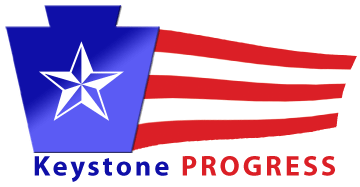(HARRISBURG, Mar. 9, 2012) – A toxic mixture of state special education and charter school laws and more than $23 million in funding cuts are violating the civil rights of Chester Upland School District’s 700 special needs students, according to a federal complaint Pennsylvania’s largest school employee union and two other public interest groups have filed with the U.S. Department of Justice.
Mike Crossey, president of the Pennsylvania State Education Association, explained that PSEA, the Public Interest Law Center of Philadelphia, and the National Association for the Advancement of Colored People filed a civil rights complaint with the federal Department of Justice’s Office of Civil Rights in order to protect the interests of Chester Upland’s special needs students.
“The crisis in Chester Upland is so severe that it could become a full-blown tragedy for students with special needs,” Crossey said. “The civil rights of these students are at stake and we need to stand up for them.”
Crossey explained that state laws forcing Chester Upland to make artificially inflated payments to charter schools are draining the district’s resources.
Chester Upland is forced to pay $24,528 for each special education student who attends local charter schools, an amount nearly twice the $13,458 per student special education subsidy the district receives for its own students. Enrollment numbers in at least one local charter school indicate that the charter school is identifying an unusually high number of students with mild disabilities and experiencing a payment windfall.
“These laws are fundamentally unfair, they favor charter schools over traditional public schools, and they are draining Chester Upland’s resources,” Crossey said. “This bizarre payment scheme is among the root causes of the district’s financial distress.”
The school district is on the brink of closing its doors because of these crushing payments to charter schools and unprecedented state funding cuts, which have hit poorer school districts even harder than their wealthier neighbors.
Even though Gov. Tom Corbett publicly committed to providing the school district with funding to keep its doors open for the rest of the school year, only a fraction of the crucial state funds the district needs have arrived.
“This is a legal issue, but it’s also a moral issue. The Commonwealth can’t allow students with special needs to lose their education because of funding cuts,” Crossey said. “Promises don’t pay for the services these students have a right to receive.”
The complaint cites four specific problems with the state special education subsidy and the charter school law:
(1) Under the state charter school law, the per student special education payment Chester Upland
is required to make to charter schools is nearly twice as high as the per student special education reimbursement the district receives from the Commonwealth.
(2) The Commonwealth’s special education formula caps state support at 16 percent of the school district’s students. As a result, the school district receives $13,458 per student through the state formula, even though Chester Upland is required to pay $24,528 for 100 percent of special education students charter schools identify. No cap applies to the payments Chester Upland is required to make to the charter schools.
(3) The state charter school reimbursement program was eliminated in 2011. It was enacted in 2001 to help school districts cover at least a portion of these extraordinary charter school costs.
(4) The Commonwealth is not carefully monitoring charter schools to ensure they are not over-identifying special education students with mild disabilities and experiencing a windfall in per student payments from the school district, at the expense of other special education students in the district.
“This is unfair on its face,” Crossey said. “In Chester Upland, these long-standing inequities are a huge part of the problem. Add this to unprecedented state budget cuts to the district, and you understand why this school district is having a hard time keeping the doors open.
“Someone needs to speak out for the special needs students who will suffer if this school district is forced to close its doors. We are proud to join with parents, educators, and advocates in Chester Upland and say enough is enough.”
Crossey is a special education teacher in the Keystone Oaks School District. An affiliate of the National Education Association, PSEA represents more than 193,000 future, active and retired teachers and school employees, and health care workers in Pennsylvania.

No comments:
Post a Comment